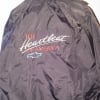-
Similar Content
-
- 1 reply
- 560 views
-
brakes Brake Fluid and testing for brake fluid SAVANT LABS
By customboss,
- brake fluid
- fluid
- (and 6 more)
- 0 replies
- 261 views
-
- 4 replies
- 1,172 views
-
- 9 replies
- 1,246 views
-
Brake System Failure, Service ESC, Trailer Brakes Disabled
By PeoplesAlpha,
- denali ultimate
- bds suspension
- (and 3 more)
- 3 replies
- 3,500 views
-
-
Recently Browsing 0 members
- No registered users viewing this page.
-
Forum Statistics
247.6k
Total Topics2.6m
Total Posts -
Member Statistics
-
Who's Online 23 Members, 0 Anonymous, 1,619 Guests (See full list)

















Question
Daughter-of-a-Yukon-Owner
New member here. I'm 17 and graduated from my school's Automotive program three weeks ago. I thought this meant I was knowledgeable enough to save my parents some money by replacing the front brake pads, rotors, axles, and bearings on their 2000 Yukon XL 2500 for them. Everything went relatively smoothly aside from a rusted-on bearing hub bolt that needed to be sawed off and replaced. After putting the tire back on, I gave the wheel a spin and a soft but noticeable grinding noise emanated from the wheel assembly. I tried the tire on the other side and the same thing happened. I looked up the problem and most people said to drive the car normally and the noise would go away after a mile or so. I drove the car 16.2 miles to my high school and back (braking hard three or four times) but the noise didn't go away. I invited an Autotech classmate over to take a look. We tried rebuilding the caliper pistons. Turns out the dust shield isn't replaceable, and I had to buy a new caliper for the passenger side. The noise didn't go away after replacing the caliper either. Any advice for a girl who's out of ideas?
Thank you,
Daughter-of-a-Yukon-Owner
Link to comment
Share on other sites
7 answers to this question
Recommended Posts
Archived
This topic is now archived and is closed to further replies.